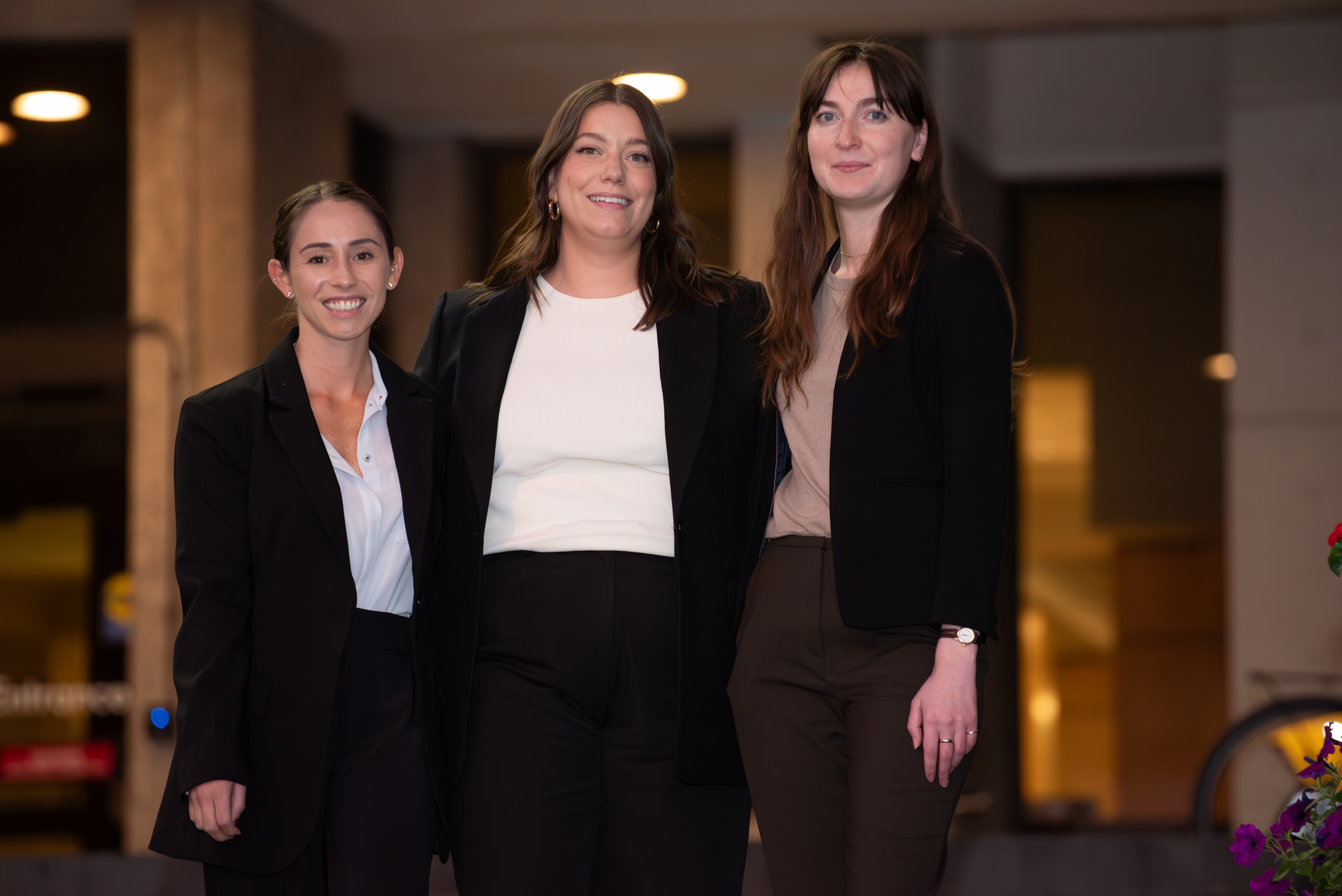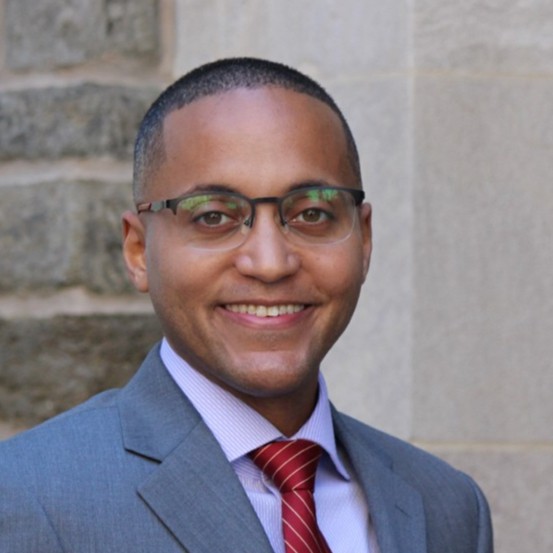
Student-advocates in Temple Law’s Federal Appellate Litigation Clinic have won an appeal in prisoners’ rights litigation before the Third Circuit Court of Appeals. Don Arrington, Cara Costanzo, Jen Hance, and Stephanie Terinoni – now graduates in the Class of 2024 – represented William Webb, who is incarcerated in Delaware’s James T. Vaughn Correctional Center, under the supervision of Professor Mary Levy and Jessica Rickabaugh of the Tucker Law Group. All four students agreed that representing Mr. Webb through the Federal Appellate Litigation Clinic was the highlight of their law school career.
“This was by far my favorite experience of law school and was truly an amazing way to end my law school career,” said Stephanie Terinoni, now a tax associate at Blank Rome LLP. “Getting to represent a real client and give him a voice, when he felt like he didn’t have one, was so rewarding. I also learned so much about the appellate advocacy process that is tough to teach in a traditional classroom setting.”

Don Arrington, now a judicial law clerk in the New Jersey court system, came to Temple to pursue appellate advocacy. He emphasized the opportunity to experience the appellate process in-depth: “This was the best experience of my time at law school. Getting to represent a client and work on real issues at the Third Circuit taught me so much. I learned about the appellate process of lawyering – how to look through the record for issues, how to narrow and focus my research, and how to draft, edit, and redraft an appellate brief. My writing and research skills greatly improved through my work on Mr. Webb’s case.”
At issue was whether the client, Mr. Webb, had done everything in his power to comply with prison processes and court procedure in litigation over his right to visitation from his daughter, which implicated potential First and Fourteenth Amendment claims. The clinic students, Professor Levy, and Counselor Rickabaugh served as court-appointed counsel and were thanked by the Court for “ably representing Mr. Webb.” “This was an extraordinary team of student-advocates,” said Professor Levy. “They were meticulous in their research, zealous in their advocacy, and compassionate with their client. They each embraced their individual responsibilities and grew as lawyers through their work together. I’m extremely proud of them.”
Jen Hance, now an associate in Stradley Ronon’s Investment Management group, reflected on the opportunity to balance individual and collaborative work product. “The clinic was absolutely the most hands-on experience that I got in law school and really showed the experience of litigating in the Third Circuit, working with a client directly, and being responsible for your own work product. It was also one of the only group-work experiences in law school, which I think is more realistic to working in practice with teams of other lawyers,” she said. “The team was such an amazing resource. Everyone brought different strengths to the table. I learned so much from working with them, and from working with Professor Levy and Jess.”
Terinoni agreed. “Collaborating with my peers, Professor Levy, and Jess was one of my favorite parts of the entire process. Getting to hear how others think about a concept or argument and working through any disagreements only made our legal arguments stronger for the client. Professor Levy and Jess were excellent supervisors, as they would ask questions in response to our findings to make sure we were not missing anything along the way.” Arrington added, “I learned a lot from my colleagues, from different writing and editing techniques, and just different ways to think about legal issues. It was incredibly helpful to have so many brilliant minds working on the case. Our work was so much better because of it.”
Now at Cozen O’Connor, Cara Costanzo reflected on how the clinic has prepared her for practice. “My involvement in the clinic allowed me to develop practical skills that I have already used in my time as a new lawyer, especially with respect to brief writing …. The clinic gave me confidence in my ability to overcome steep learning curves, to produce persuasive, thorough briefs, and to vigorously advocate for my clients. As a lawyer just starting out, when I am assigned an unfamiliar task and I begin to question my abilities, I remind myself that this team successfully handled an appeal with no prior appellate experience.”
“The clinic brought everything from law school into reality, and it really highlighted the privilege and responsibility that comes with being a lawyer,” added Hance. “It’s a real privilege to have access to a high level of education, and to have this job. It comes with a responsibility to give back to the community for people that don’t have the same access and opportunity. It definitely made me more passionate about continuing pro bono work throughout my career.”
In addition to hands-on experience in appellate advocacy, the students gained perspective that will shape who they are as lawyers. “I just really learned a lot about my own research and writing process – what works, and what doesn’t,” said Arrington. “And I learned a lot about how much the law is stacked up against people who are in prisons and jails, and how much the law is skewed against prisoners and poor people – how large of an uphill battle they have to fight to get justice.”
“The work was worthwhile because it allowed our client to know he had a team in his corner,” said Costanzo. “Being able to advocate for changes to prison litigation procedures that enable clearer access to the courts was really rewarding. The clinic educated me on the many obstacles unrepresented individuals face in our legal system and instilled in me a commitment to pro bono representation.”
Terinoni agreed. “One of my big takeaways throughout this entire process is sometimes fighting for a client is a win in itself. Mr. Webb was so grateful to have the clinic take on his appeal because we cared. To me, that was a win before the case was even decided. But, the win at the Third Circuit made the first win even sweeter.”
The full opinion in Webb v DOJ can be found here:
